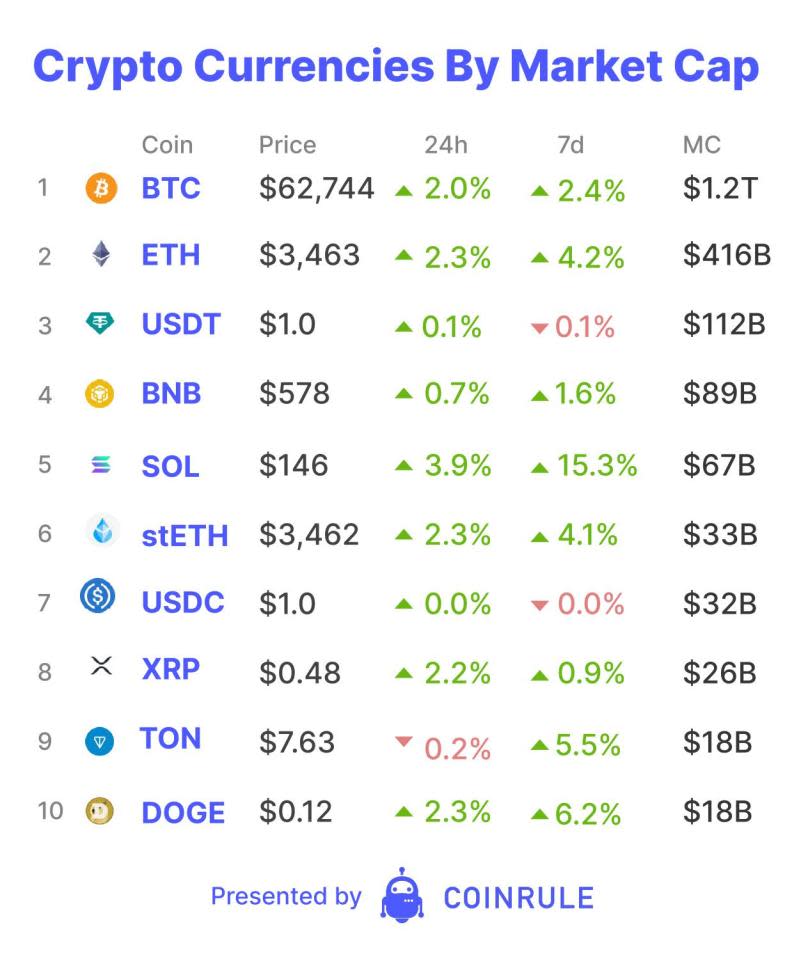Legal battles continue to dominate crypto conversations

Each day, Coinrule will run through the state of the digital assets market for Blockbeat, your home for news, analysis, opinion and commentary on blockchain and digital assets.
Once again it was not the technology at the centre of attention over the past few days. Instead, the talk of the day is what a major Supreme court decision will mean for the future of crypto in the US. But that is not everything on the legal and regulatory front. The Securities and Exchange Commission (SEC) enforcement action against Consensys, the company behind the widely used Metamask browser wallet, continues. Also, the SEC had to take another painful hit in its lawsuit versus Binance.
Let’s recap everything. First of all, on June 27, the U.S. Supreme Court in a 6-3 vote killed a legal precedent known as the “Chevron deference”. The rule, set in 1984, gave agencies such as the SEC wide powers to interpret laws and decide the best ways to apply them. In practice, this meant that federal agencies had authority over a wide range of decision-making. If a defendant wanted to challenge the rules, they would essentially have to face a regulator who had set the rules in question. The power balance was leaning firmly to the side of the agency.

This approach has now fundamentally changed. Lawmakers will need to define rules and laws much more extensively. Courts will need to interpret them. The roles of the agencies will be far smaller. This, of course, could mean significantly more U.S. crypto businesses challenging the regulator in court in the near future. It could prove to be a saving grace for the industry in its fight against aggressive SEC enforcement actions.
But even without the removal of the ‘Chevron deference’, the SEC has been facing losses in court. A district judge has dismissed the SEC’s argument that secondary sales of Binance’s BNB token qualified as securities under the famous Howey test which the regulator uses to demonstrate what constitutes a security. The judge cited a previous opinion from the SEC’s lost case against Ripple which stated that the economic reality of the tokens’ transactions mattered when applying Howey. The judge further stated that the industry should not be regulated through individual lawsuits. How Howey applies to crypto is not currently clear.
This is a major win for the industry yet again. The win once again proves the point that you cannot apply an ancient, existing rules framework to an entirely new industry. This however has not stopped the SEC from continuing its enforcement action against Consensys. The case continues and more legal battles are left to fight. The question still remains whether the crypto industry, and decentralised finance in particular, will have a future in the United States.
The views and opinions expressed in this article are those of the authors and do not represent those of City AM, its affiliates, or employees.

 Yahoo Finance
Yahoo Finance 